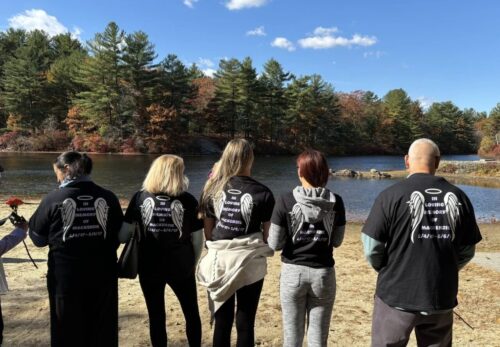Improving the Guardianship Process: Better for Patients and Better for Hospitals
May 10, 2019

Getty Images
Reinventing the guardianship process at a large safety-net hospital reduced the average length of stay by 75% and freed up beds for new patients with acute need.
The scramble to secure guardians for incapacitated patients is a major yet mostly hidden source of stress at American hospitals. Across the country, an inefficient and convoluted guardianship process all too often prolongs hospital stays for inpatients and places an unnecessary burden on family members, hospital staff, and our healthcare system as a whole.
Here’s a scenario: A patient without a healthcare proxy arrives at a hospital for surgery, and a complication during the procedure renders them unable to make their own healthcare decisions. After being admitted and stabilized, the patient is ready to be discharged to a long-term care facility, but the hospital isn’t able to complete the discharge without a surrogate decision-maker in place.
That triggers a search to locate somebody — next of kin, an extended family member, a friend — who is willing to become the guardian. That person, sometimes with assistance from a social worker, then needs to complete the extensive guardianship documentation, deliver official notice to all parties involved, and attend a hearing at probate court. If the person seeking the guardianship is not a lawyer, there can be mistakes in the process — for example, the guardian-to-be checks the wrong the box on the paperwork, fails to give proper notice to people who have an interest in the matter, or fails to show up to the hearing. Any of these mistakes could delay the legal process and delay the patient’s discharge even further. The process can take months.
The challenge is even greater in cases that involve patients with no close family or friends and homeless patients who have no identifiable ties or family. In those situations, it falls to the hospital’s legal team to assemble and complete all the paperwork and spend a half-day or more in probate court to appoint a guardian. In states such as Massachusetts that do not have a public guardianship program, the hospital’s lawyers also must take on the search for a professional or volunteer guardian willing to become the surrogate decision-maker for the patient.
Until very recently, these were common scenarios at Boston Medical Center (BMC), where we work as attorneys in the general counsel’s office. A 514-bed safety-net hospital, BMC is the busiest provider of trauma and emergency services in New England and serves a disproportionately high number of medically and socially complex patients, including the elderly, recent immigrants for whom English is not their primary language, people with uncontrolled substance use disorders, patients coming through the ED for issues like accidents and stroke, and people who lack stable housing. Although BMC sees more cases of guardianship involving homeless patients than other area hospitals, our struggles with guardianship are by no means unique.
Since we put a new process in place, the average length of stay for patients needing guardianship has dropped from 150 days to 39 days — a 75% reduction.
The guardianship process has had a substantial impact on patients and hospital resources. At any given time, 10 to 15 inpatients at BMC are pursuing guardianship, and those patients experience significantly longer average stays than their counterparts. In early 2018 — before an extensive overhaul of our guardianship process — the median length of stay for a BMC patient needing a guardian was about 100 days, compared to a hospital-wide average length of stay of just 5 days. In extreme cases, some patients without guardians have stayed at BMC for more than a year after they were ready for discharge.
Once we realized the full magnitude of the problem, we urgently set out to find a solution to reduce these medically unnecessary stays at the hospital. Shorter hospital stays would clearly be better for patients, better for families, and better for the hospital, too.
Guardianship process redesign: Building a solution
In search of a solution, we reached out to other local institutions, including our counterparts at Beth Israel Deaconess Medical Center, who had tackled guardianship themselves. After those early conversations, we quickly realized that retaining outside counsel with a focus on guardianships was essential.
Outside counsel would work with the patient’s family members or friends to navigate the process — a task that had largely fallen to our social work team. And the outside counsel, not the prospective guardian, would assume responsibility for collecting and filing the paperwork and attending the hearings. The process to obtain a temporary guardian would take weeks instead of months, and it wouldn’t put the onus on the family or our staff.
Guardianship had become a constant burden for our social work team and medical staff providing care to these patients. In many instances, the social workers, who are not attorneys, were helping the guardians-to-be with paperwork and explaining the process. The hospital’s in-house legal team, who have myriad responsibilities, did not have the bandwidth to complete the legal filings and attend the hearings for every guardianship being brought on behalf of a patient in the hospital.

The guardianship process had become a major burden for BMC’s team of social workers, who often helped the guardians-to-be with paperwork and explained the process. (Matthew Morris)
Ultimately the patient’s family or friend had to go to court and manage the judicial process on their own. The care providers involved in this process recognized that this was causing delays. Many of the patients involved in this process were stuck in the hospital even though they no longer needed an acute level of care, and the medical team still needed to round on them in addition to patients who did need their care. This was a problem impacting the patient and employee experience.
Outside counsel would solve for this. Moreover, unlike our hospital’s legal team, outside attorneys are in probate court all the time and have developed relationships there that enable them to work more efficiently.
We focused on improving the experience of the patients, families, and caregivers involved in this process. We did this through the lens of healthcare quality improvement and began collecting data to further understand the depth of this issue at BMC. In our initial assessment, we were able to see that if we could fix the problem, there were also potential financial implications that would result from freeing up hospital beds faster. Freed beds would be available to patients with acute need. We determined that the financial benefit of freeing up the hospital beds would far outweigh the costs of retaining outside counsel.
Very early on in our project, we met with BMC’s leadership team, including the chief operating officer, the chief nursing officer, and the chief legal counsel. As we outlined our project, it was clear that they understood the vast benefit this project could provide to our patients and our health system, and they expressed their full support as well as offered advice for how to move forward with our plan.
The intervention and the results
We formed a multi-disciplinary group consisting of core departmental stakeholders from legal affairs, business strategy, social work, case management, psychiatry, and the hospitalist service. This core group worked with executive leadership to identify, plan, and execute interventions to streamline the guardianship and conservatorship processes. The intervention we devised had two main parts:
- Expedited legal process. We retained two outside firms to petition for the would-be guardian on behalf of the hospital. Our workgroup also studied how to manage outside counsel and engage hospital staff as efficiently as possible once the need for a guardian is determined. We developed streamlined processes between our legal department, outside counsel, and the clinical care team.
- Centralized guardianship oversight. We established a guardianship oversight committee, which includes members from the departments of social work, case management, psychiatry, legal affairs, patient financial counseling, and business strategy. This group began meeting weekly to identify potential guardianship needs. We designated staff to perform regular reviews of patients’ current length of stay and flagged anyone who might need a guardian within seven days of their admission.
Within two months of our meeting with members of BMC’s leadership team, we were able to retain outside counsel and establish the oversight committee. Once we did, the impact was virtually immediate. Since April 2018, when we put the new process in place, the average length of stay for patients needing guardianship has dropped from 150 days to 39 days — a 75% reduction — and the median length of stay has dropped from about 100 days to 34 days. Implementing the new system has also freed up an average of 5 to 10 beds per day.
The intervention has also relieved the workload for our social work team. In a survey sent to all full-time adult inpatient social workers at BMC, 85% reported a decrease in guardianship workload (with three-quarters of the social workers responding). We estimate the team’s overall guardianship workload has decreased by 30%.
New patients will occupy about 80% of the beds made available because of the guardianship project, according to our estimates. The cost savings to the hospital have been considerable.
Next up: Focusing on healthcare proxies
A third component of our intervention involved working with the social work team to engage patients and family members and obtain healthcare proxies whenever possible. It’s important to note that if a patient has a healthcare proxy in place when they become incapacitated, the entire guardianship process can be avoided.
Over time, we expanded the scope of the weekly guardianship oversight committee to include discussions on how we might improve our healthcare proxy process further. We’re now considering who else should be involved in obtaining healthcare proxies from patients and are engaging a core group — including patient registration, nursing, and health information management— to promote the use of, and further improvements to, the healthcare proxy process.
Legislative changes to the statewide guardianship process
Our project was able to reduce the average length of stay for guardianship patients from 150 to 39 days, but it was a ground-up effort. The state could make improvements to the Massachusetts guardianship process by:
- Joining the 44 other states that have default surrogate consent statutes in place. Default surrogate consent statutes give next-of-kin — and, in a growing number of states, friends — the ability to make healthcare decisions for a loved one without going through a judicial process.
- Enacting a public guardianship program for the unbefriended population. This population is perhaps the most vulnerable, and the state could provide a program of trained guardians who have the ability to serve as surrogates to make medical decisions. Currently, unbefriended patients can experience prolonged unnecessary hospitalization while counsel looks for an appropriate person to serve as guardian. A public guardianship program would offer an efficient way to provide unbefriended patients with an experienced surrogate decision-maker.
Two proposed bills have come before the Massachusetts legislature in the last two years: 1) a bill establishing surrogate consent for medical decision making and 2) a bill establishing a public guardianship program. To date, neither bill has been passed, but the legislature did establish a commission to further study the guardianship process in Massachusetts. The commission will be looking at alternatives to guardianship and the need for a public guardianship program.


